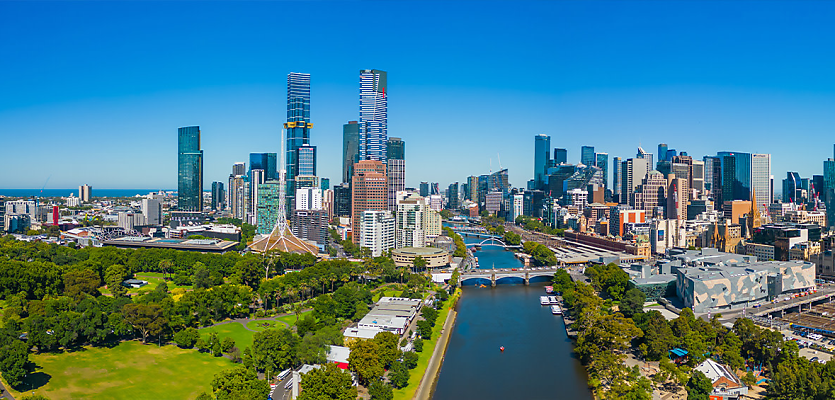Investors are returning to Victoria, with investor loan growth surpassing owner-occupiers for the first time since June 2023, while Queensland tops the nation for annual investment loan growth.
New data shows investors are returning to Victoria, with annual investor loan growth surpassing owner-occupier loans for the first time since June 2023, rising 12 per cent compared to 8 per cent.
Money.com.au’s mortgage expert, Alex Dore, said Victoria has seen a surge in investor confidence driven by high expectations of capital gain.
Dore said Victoria’s increase in investor loans can be linked to the 17 per cent growth in construction loans and a 13 per cent loan rise for existing properties, despite other investment assets declining.
Additionally, data showed that the state still maintained its position as an owner-occupier-dominant state with 94,308 loans annually compared to 43,568 investor loans.
The state also asserted its position nationwide, recording an 11 per cent increase on established home loans compared to 6 per cent for the rest of the country.
Queensland
On the east coast, Queensland recorded the highest annual growth in investor loans of all states, dethroning Western Australia.
“After a strong run in WA, investor momentum is now picking up in markets like Queensland – particularly as we edge closer to the Brisbane Olympics,” Dore said.
The state accounted for 47,015 investor loans, marking a 24 per cent increase in the year to March 2025.
Additionally, Dore said Queensland maintained its position as the second-highest investor market across the country, behind NSW.
“This is further supported by the Sunshine State recording the biggest jump in construction loans for owner-occupiers – up 29 per cent year-on-year, well above the national average of 9 per cent,” he said.
“Thereʼs strong investor confidence in long-term property development and regional growth opportunities across Queensland.”
Western Australia
After being the highest investor loans state for three years, Western Australia lost its position and now sits right below Queensland, recording a 23 per cent increase in investor loans in the 12 months to March 2025.
Dore said Western Australia still holds its place as the second-fastest growing investor market in the country.
Data showed that investment in the state remained steady across key segments, with new investor properties recording a 34 per cent growth, construction loans rose by 32 per cent, and land loans increased by 40 per cent.
“This reflects the broader uplift in home building across the state, particularly in apartments and units,” he said.
NSW
Despite being the most expensive state nationwide, NSW recorded the highest share of investor loans at 30 per cent.
Dore said that NSW recorded the most balanced investor market nationwide, with investor loans for new properties and existing properties going head to head, recording a 23 per cent and 20 per cent rise annually.
Similarly, data showed that annually, the state’s investor loans grew in part, with the national average at 19 per cent.
“Investors know that buying in NSW is a long game; the entry costs are higher, but so is the potential for long-term payoff in terms of capital growth and rental yields,” Dore said.
Meanwhile, Dore said NSW’s owner-occupier market is showing modest momentum, recording the slowest annual growth among the major eastern states at 5 per cent, slightly trailing the national average of 6 per cent.
South Australia
Investors have been driving the market in South Australia, recording the third-highest annual growth rate at 22 per cent, behind Queensland and Western Australia.
“All investor segments recorded double-digit growth, signalling broad-based confidence in the South Australian market,” Dore said.
On the other end, South Australia saw the slowest overall growth in owner-occupier loans at 2 per cent year-on-year, but leads the nation in loan growth for new owner-occupier properties, rising 36 per cent annually off a low base.
“Of the 21,456 owner-occupier loans issued in South Australia over the past year, 1,362 were for new properties,” Dore concluded.
ABOUT THE AUTHOR








You are not authorised to post comments.
Comments will undergo moderation before they get published.